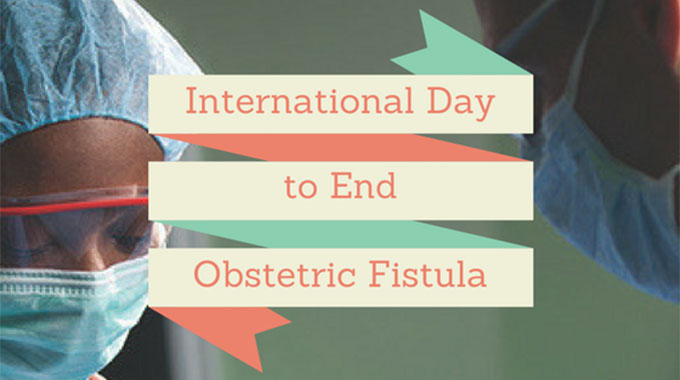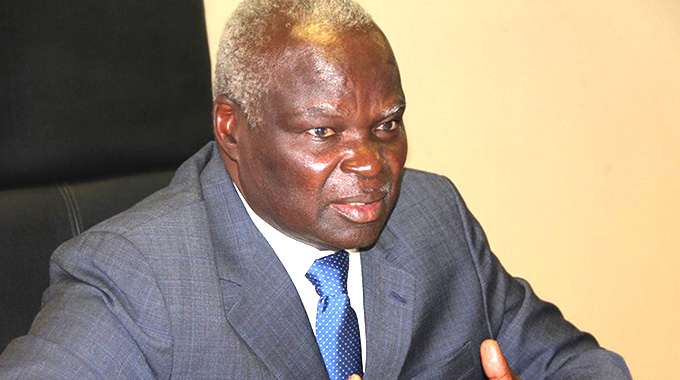Health envoys to help raise awareness

Rumbidzayi Zinyuke-Senior Health Reporter
THE Government has roped in survivors of obstetric fistula, a child birth injury, to help raise awareness about the importance of seeking health care early among marginalised communities and religious sects that do not believe in visiting health facilities.
The injury, which is usually caused by prolonged obstructed labour, results in an abnormal opening between the genital tract and the bladder or rectum.
This leaves the woman continuously leaking urine, faeces or both.
Ministry of Health and Child Care national maternal child health officer Dr Chipo Chimamise told journalists at a media sensitisation meeting held last week to mark the International Day to End Obstetric Fistula that the majority of women suffering from the condition were from marginalised communities where the religious sects are mostly dominant.
“About 48 percent of the over 900 women whose obstetric fistulas have been repaired since 2015 are coming from Manicaland, specifically the Checheche area and Chimanimani; those are red spots for us,” she said. “Gokwe South and Mbire area are also contributing significantly to the burden of obstetric fistula.
“Some of these women are from communities where child marriages are rampant and there are religious sects that shun visiting hospitals. These women do not have any power to make decisions about their health and they may labour for days at the church shrine or in the home before they are taken to hospital and by that time, she would have suffered massive injuries.”
Dr Chimamise said it was fortunate that some of the women who had since received treatment were now ambassadors helping to spread the word about the condition, its causes and the available treatment options, among the religious sects and communities.
Obstetric fistula causes untold suffering as it leads to stigma, rejection and failure in some social and economic activities.
The Ministry of Health and Child Care, with support from development partners, has been offering free treatment for obstetric fistulas through quarterly repair camps at Chinhoyi provincial hospital and four other Mission hospitals across the country.
“We don’t want to have such incidents where women suffer injuries during childbirth,” said Dr Chimamise. “We want safe deliveries, that’s why the Ministry is establishing health facilities closer to the people and we now have health posts, which are right there in the village. Every woman should be able to get help, referred to the next level of care if needed for assisted birth.”
Dr Chimamise said the Ministry was also training health care workers including midwives and primary care nurses to become proficient in handling maternity cases and to quickly refer complicated cases.
Ms Tendai Chimana from Birchenough Bridge, Manicaland, who suffered from obstetric fistula for 12 years after her first pregnancy at the age of 14, is one of the ambassadors for obstetric fistula.
“When I went into labour, my aunt, who I was staying with in Marange took me to a midwife in the area and we stayed there for days, but I just could not push the baby out,” she said. “I was only taken to hospital after my aunt’s son unexpectedly came and found out that I was having a home delivery. By the time I got to the hospital, my baby had died.”
An emergency caesarean section removed the dead baby, but left her with a whole array of medical problems, chief among them obstetric fistula.
All efforts to help her were fruitless and she suffered incontinence for 12 years.
“I got help when I heard about the fistula repair camp at Chinhoyi Provincial Hospital and I managed to get it repaired in 2018,” said Ms Chimana. “Since then, I have been working hard in the communities to spread the word about this condition trying to help other women in the same situation as I was in to get help.
“I am proudly an ambassador for obstetric fistula and I will continue to share my experience with others who have not been enlightened.”
Ministry of Health and Child Care obstetric specialist Dr Marvin Venge said cases like Ms Chimana’s were common, especially in rural areas where women stayed far from referral hospitals.
He said awareness was needed to reduce the incidence of obstetric fistula.
“Risk factors for obstetric fistula include poor obstetric care where women delay going to the hospital at the onset of labour or when healthcare is delayed due to the distance from the home to the clinic or hospital,” he said.
“We need to educate the communities that booking early and going to hospital as soon as labour begins is important. Under-age pregnancies are also a challenge; people should desist from marrying young girls because this is the major reason why they suffer obstetric fistula because their pelvic bones are not yet ready to give birth.”











Comments